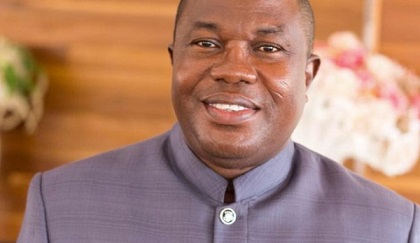
A newsy, political week!
It occurred to me as I sat down to write that this week may turn out to be the most important in the life of the current administration, starting last week Thursday when the Finance Minister, Mr Ken Ofori-Atta, delivered the 2019 budget in Parliament.
Advertisement
Decision
The decision of the Supreme Court, affirming the undiluted power of pardon of the President is very interesting on two fronts. The 5-2 decision was an emphatic avowal of two constitutional planks which underlie our democratic order.
The decision was a clear defence of free speech rights, and for those in the media, of media rights. I am convinced that this decision and its champions and opponents, has established the importance of this forum.
That the first plaintiff in the case is the current executive secretary to the President, Nana Asante Bediatuo should have rendered anomalous his position. The second plaintiff, a presidential aspirant of the opposition NDC, has also rendered his quest to be flagbearer of the party as irregular and paradoxical. I am very happy that I was among those who signed the petition to then President John Mahama to pardon the Montie Three.
Congress politics
Perhaps the most important event this past week was the politics surrounding the NDC congress, some of the decisions taken there, and their likely impact on all of us.
The clearest difference between the ruling New Patriotic Party (NPP) and the opposition NDC is that the former in power imagines it can actually silence or disintegrate their opposition for good with better leadership, management style, targeted prosecutions and ideology whilst the NDC in power, in obedience to the lessons of its roots and history, seeks victory through provision of development and a belief in competition as the decider of who rules this country.
This is what the late J.H, Mensah meant at the onset of the Kufuor presidency in 2001, when he said emphatically that by the time the NPP was done with jailing NDC past government functionaries, the party would be dead.
The vim, enthusiasm and sheer camaraderie exhibited at the NDC congress at the weekend proved conclusively that the wish to kill off the NDC is wishful thinking.
Other Trending Stories
The party congress seized the airwaves for three days, burying Thursday’s budget in the rubble. Worse, the anti-NDC pundits had absolutely nothing to report and gloat on with regard to vote-buying and violence between party members.
The uncharacteristically long voting process which was the direct fault of the newly-reconstituted Electoral
Budget
The 2019 Budget was uninspiring, unimpressive and contained no earth-shaking development goodies for the people of Ghana, assuming that development and infrastructure per se garner votes. According to the NPP 2016 campaign, they should not. Especially since two years of the
If you factor in the cause of
It is this rebasing, and the end of budgetary support from the International Monetary Fund, useful as they are, which provides the key to future NPP economic policy.
They have created the space to borrow in excess of 100 billion dollars in the time left for this government, but not enough time for its positive use to be felt and appreciated by voters come December 2020. In other words, the NPP government would have to rely on empty public relations for
NDC congress
Now to the most important news item this week, the NDC congress. The refusal of the executive to publish and add the report of the Justice Brobbey Commission to the LI in Parliament is actually related directly to the politics of ‘’world banks’’ in our elections. If the proposed Oti Region is to hive off pro-NPP sections of the Volta Region, then the charge that one party is anti-Ewe or pro-Akan is both confirmed and proven. Why close
It is a common complaint of some losing candidates in elections that they represent their regions, which is false. Competence is more useful as a guide to voting since
In the 2016 general elections with the suspension of Kwabena Agyepong from the general secretaryship of the NPP, some in the NPP actually complained along such lines, that the NPP world bank has been left out of the executive line up, but it did not affect the general election results and Ashanti support. In any case, national executive elections are not inter-regional contests, neither is Ghana a federation but a unitary republic.
As
Complaints
These complaints are the small pickings by pundits from a party conference expected by opposing pundits to sound the death knell of the NDC. The opposition NDC party rather came out energised, united and ready for its crucial congress to elect its flag bearer for the 2020 elections. The age-old strategy of the ruling party buying malleable candidates for office in opposition parties since 1992 has been proven to be a costly profitless one. And because of the way and manner this one ended with the election of old trusted party hands, the way is now set for the NDC to give the ruling NPP a real election in 2020. An immediate effect of the elections in the NDC was the announcement last Monday from the Ministry of Information to hold biweekly media engagements obviously to expose government actions to the people through the media. Why this decision? In the meantime, congratulations are in order to the NDC for successfully overcoming a hurdle in its quest to recapture power.



